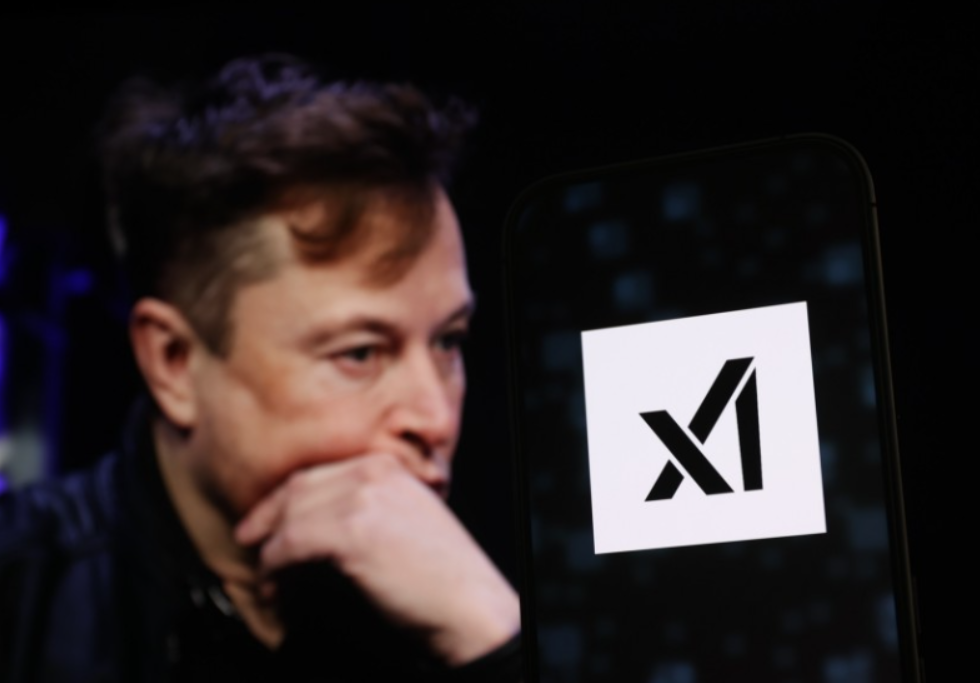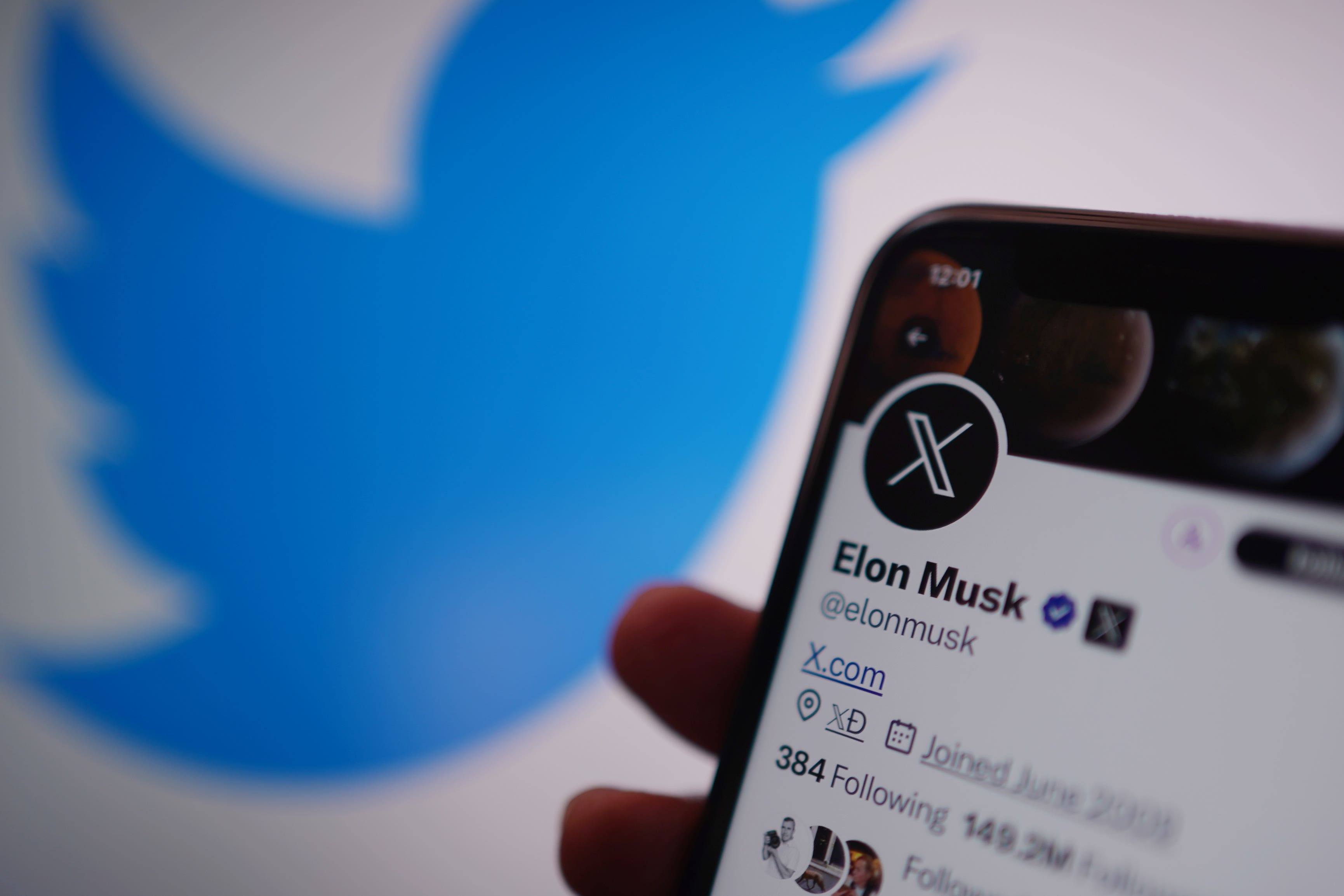Elon Musk is no fool - there’s a reason he’s the world’s richest man
History is littered with rebranding disasters, but the richest man in the world is no fool – now is the time to strike before the competition catches on, writes Chris Blackhurst


There are polite words for Elon Musk. Counterintuitive, genius, maverick… all fall into that category. And there are others, such as clown, bonkers and mad, and some that are plain offensive.
Consider this: you pay $44bn (£38bn) for a social media giant, one with a widely recognised name, that’s been in existence for 17 years. You then sack a load of the senior executives and lay off many more, before playing around with the parameters of the site, making it more restrictive for its most frequent users and costly for the most celebrated. Then, you change its identity completely.
All this, in the face of advertisers withholding their spending and the launch of a “killer” rival from your closest competitor. Just when you might suppose the sensible path would be to promote the established, existing logo... you scrap it. Wow, double wow, triple wow.
It’s not over. The brand you choose, after appealing to your 149 million Twitter followers for design ideas, is well, er, stultifyingly dull. X. That’s it. X. It’s not written the traditional way and is using a font, says its promoter and winner of the contest, Sawyer Merritt, co-founder of a sustainable clothing business, who had previously used the logo for his discontinued podcast. Although it also resembles a font deployed by the Indian dance music artist, Kxlider.
Whatever. It’s still an X. And it was predictable really since it complies with Musk’s obsession with all things X. When he took over Twitter last October, he changed its owner to X Corp. The parent of X Corp is X Holdings Corp. His new AI company is called xAI. His spaceflight business is SpaceX.
Gone is Twitter’s distinctive bird symbol. In its place is X. Musk sees the “minimalist Art Deco” sign as encompassing everything. His inspiration and where he wants to take Twitter, sorry, X, is the Chinese app WeChat, that enables its users to message, order a taxi, a takeaway and pay their bills.
In his mind, X can accomplish that better than Twitter, complete with its tweets represented by the tweeting bird. The replacement has certainly got simplicity and universality on its side. X marks the spot as it were; and everyone, regardless of language and literacy, can manage to write an X.
Nevertheless, over at Meta, home of the upstart competitor, Threads, they must be laughing. In the corporate world it doesn’t get any more dangerous than altering your name entirely. It’s bad enough if individuals do it. A friend of ours suddenly announced she was changing her name. For a period afterwards, several in her circle ignored her move totally and stuck with the old name, some chose to use an amalgam of the old and new, only a few did as they were instructed and addressed her by her new name.

Gradually, everyone did shift and for many years she has been known by her new name. But it took a long time and frequently required her explanation.
Now multiply that by a factor of millions and you get a sense of what Musk has done. History is littered with instances of rebranding disasters. Most are when the name stays the same but the design of the logo changes. Some, though, are when they went the whole hog, as with Musk. In the UK, in 2001, the postal service Royal Mail decided it would henceforth be known as Consignia. The rationale was that it wanted to be associated with more than letters and parcels and wished to embrace other activities, such as logistical services and running customer call centres.
At a stroke, 500 years of tradition was scrapped. The new name meant nothing to anyone; the switch was not communicated properly; and after 15 months, they reverted to good old Royal Mail.
Musk is only ditching 17 years, not 500, and arguably not enough to make for tradition. But still. Then again, he is the richest person in the world, worth an estimated $240bn, so he’s no fool.
What he’s doing with Twitter is erasing it from his mental map. After the Tesla co-founder first successfully bid for the network in April last year he soon tried to get out of the deal. He abhorred some members of Twitter’s then senior management, and he accused the firm of overstating its traffic figures by turning a blind eye to spam accounts. The Twitter board held him to his commitment and went to court to force him to comply. Subsequently, he renewed his offer voluntarily and the acquisition was completed in October 2022.
Ever since, he’s been embroiled in a love-hate relationship. In December, he asked those following his own Twitter account whether he should stand down as head of Twitter. Some 57.5 per cent of the 17.5 million votes cast said that he should go. True to his word, he is now executive chair and chief technology officer, leaving the day-to-day operations to new chief executive officer, Linda Yaccarino.
It’s clear that what is driving him is not Twitter or X simply being a social networking service, but a platform – used by many millions for all manner of actions. That remains a possibility, while X retains its scale. If Threads rises that may become a problem. So far, however, Threads’ progress has been slow: it had 44 million active users after launch, dropping to 13 million, and – significantly – the average amount of time on the app per user has fallen from 19 minutes to four, versus Twitter’s 450 million monthly active users. That also might explain Musk’s reason to strike now, while Threads remains small.
He is taking a colossal gamble, but then that has always been Musk’s style. Famously, he never makes formal business plans, which is just as well. The textbooks and classes at business school would say don’t do it, but then again, he did not get to where he is today by sticking to the script.







Join our commenting forum
Join thought-provoking conversations, follow other Independent readers and see their replies
0Comments